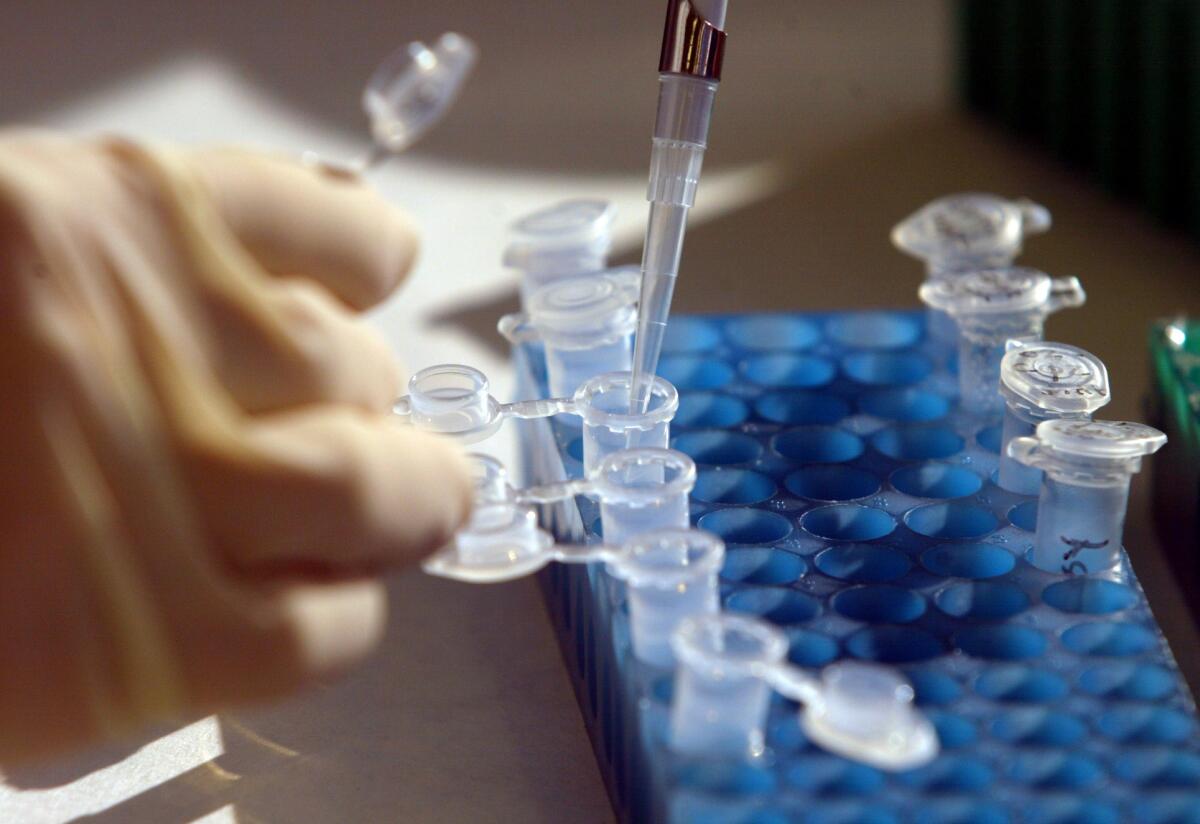California may collect DNA in felony arrests, appeals court rules

- Share via
SAN FRANCISCO -- A federal appeals court Thursday upheld the constitutionality of California’s practice of taking and storing DNA profiles from anyone arrested on suspicion of a felony.
An 11-judge panel of the U.S. 9th Circuit Court of Appeals said a Supreme Court decision upholding a similar, but narrower, program in Maryland was “fatal” to the challenge of California’s practice.
The Supreme Court, in Maryland vs. King, concluded last year that taking DNA samples was akin to taking fingerprints and a legitimate part of the police booking process.
The ACLU of Northern California argued that California’s program differed significantly from Maryland’s.
Maryland destroys the genetic evidence from those who are not convicted, while California puts the burden on such individuals to apply to have their DNA profiles expunged. Otherwise, California stores the genetic profiles indefinitely in a criminal database used by law enforcement to match evidence left at a crime scene with possible suspects.
California also takes DNA from persons arrested in so-called wobblers, crimes that could be charged as either a misdemeanor or a felony, while Maryland collects DNA only in more serious crimes.
Judge Milan D. Smith Jr., in his concurring opinion, called the differences between the California and Maryland DNA arrestee programs “illusory” and “materially indistinguishable.” The four-paragraph, unsigned majority ruling did not address the point.
All felonies are serious, he wrote, and in any case, the Supreme Court’s reasoning was not based on the kind of crime involved.
“Even though California does not automatically expunge DNA samples, California law enables an arrestee to request expungement if no charges are filed, his case is dismissed, or he is found not guilty,” Smith wrote.
[For the Record, 1:55 p.m. PDT March 20: An earlier version of this post said the court in its unsigned ruling described differences between the California and Maryland DNA collection laws as “illusory.” In fact, it was 9th Circuit Judge Milan D. Smith Jr., writing a concurring opinion, who used that term.]
maura.dolan@latimes.com
Twitter: @mauradolan
More to Read
Sign up for Essential California
The most important California stories and recommendations in your inbox every morning.
You may occasionally receive promotional content from the Los Angeles Times.














